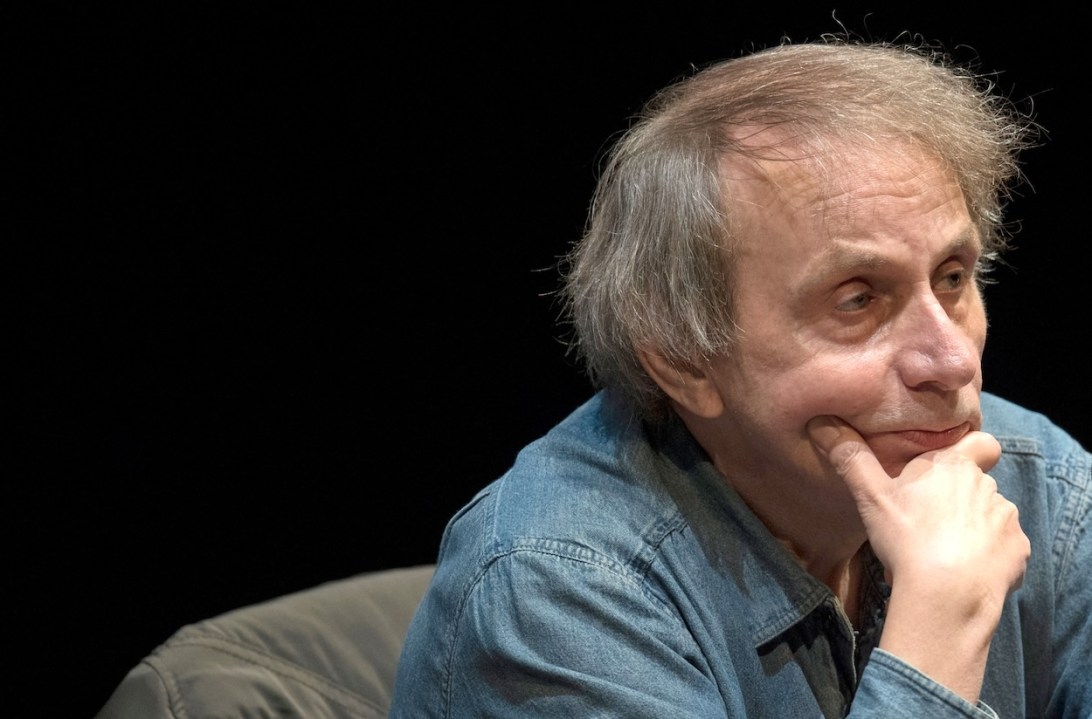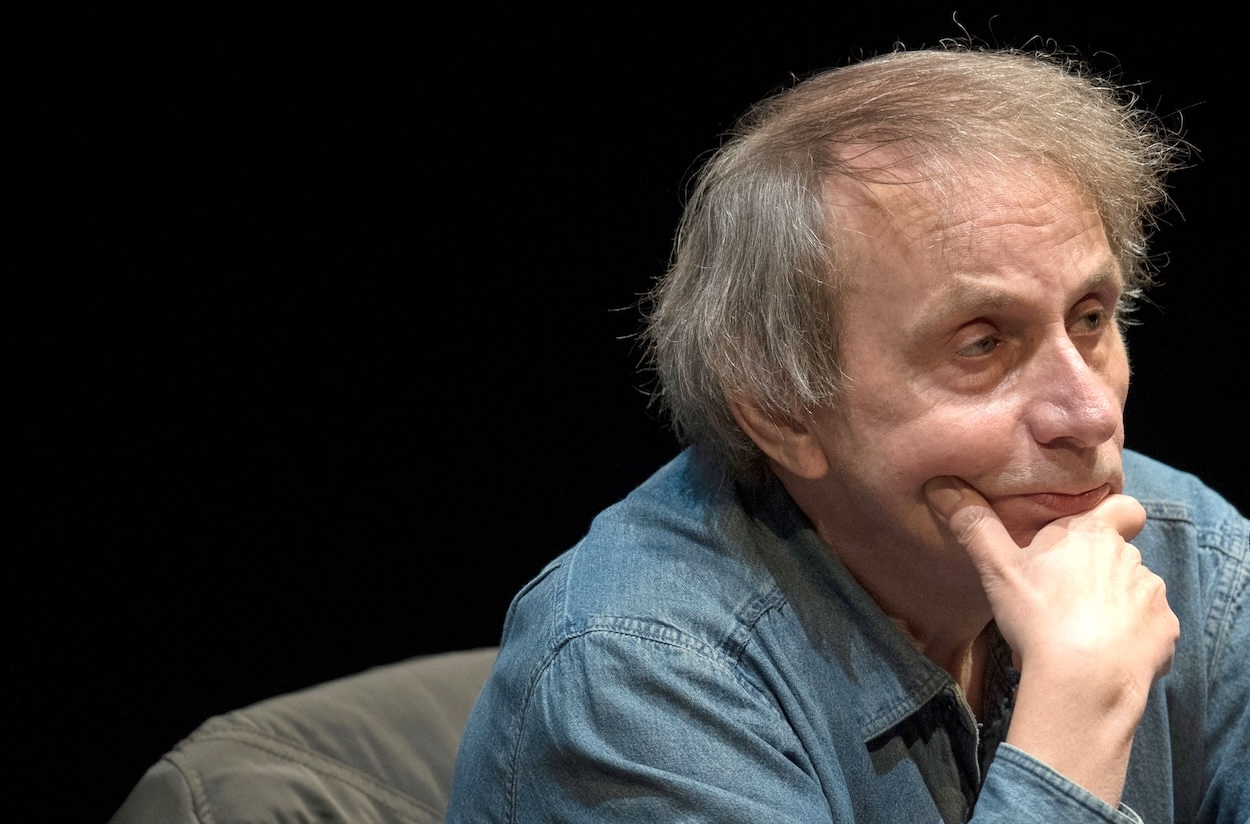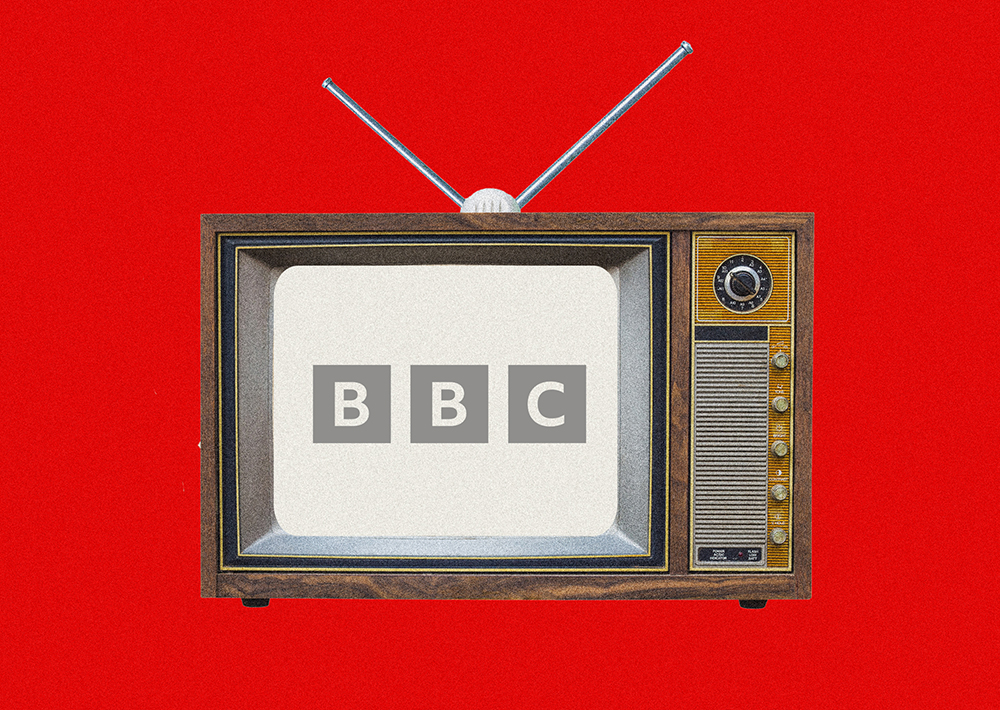The British literary scene has no one like the French novelist Michel Houellebecq. We are worse off for it. His novels combine a startling number of blowjobs with beautiful writing about God, religion and love. The British publishing industry would never allow someone who is white, male, very heterosexual, sides with Christianity against Islam, writes about the male condition and, perhaps most controversially, takes down modern feminism.
Perhaps they think Brits just aren’t good at dealing with abstracts. It’s true that the Anglo-Saxon mind prefers to stick with everyday practicalities; we struggle with the existential truths in the likes of Atomised. The book was written in 2002, and the first page opens with the following description of the situation faced by the protagonist (and by all of us):
The country into which he was born was sliding slowly, ineluctably, into the ranks of the less developed countries; often haunted by misery, the men of his generation lived out their lonely, bitter lives. Feelings such as love, tenderness and human fellowship had, for the most part, disappeared. The relationships between his contemporaries were at best indifferent and more often cruel.
Houellebecq is writing about France, but his description applies to almost every European nation, and especially to Britain. This is the world all of us are living in, and Houellebecq is one of the few writers to address it head on and truthfully.
In addition to the jaunty blowjobs, the S&M and group sex, he writes scathingly about euthanasia and the accompanying disregard for the old and weak. He strafes the feminisation of society like an A-10 on an attack run against the Taliban: refusing to believe that abortion is a vital and wonderful institution or that having a career instead of a baby is the secret to happiness.
I’ve yet to come across a writer, male or female, who addresses so keenly the implications of people avoiding parenthood. He doesn’t write about its impact on GDP, which seems the main lens through which it is viewed by the mainstream; he addresses the implications for your soul and for goodness and love and tenderness.
You can see how, for many, there is a troubling whiff of the Catholic writer about Houellebecq. No one really knows exactly what his religious position is. I don’t think Houellebecq is sure himself. He is certainly not a practising Catholic.
The entirety of Serotonin (2019) is a testament to the awfulness of the modern age, with its ‘unrelenting spread of economic liberalism and the infiltration of its pitiless logic into our love and sex lives’, according to the online magazine Compact. The last few pages of the book, though, switch to expound the only remedy to, in Houellebecq’s words, the ‘illusion of individual liberty, of an open life, of infinite possibilities’:
Houellebecq strafes the feminisation of society like an A-10 on an attack run against the Taliban
God takes care of us; he thinks of us every minute, and he gives us instructions that are sometimes very precise. Those surges of love that flow into our chests and take our breath away – those illuminations, those ecstasies, inexplicable if we consider our biological nature, our status as simple primates – are extremely clear signs. And today I understand Christ’s point of view and his repeated horror at the hardening of people’s hearts: all of these things are signs, and they don’t realise it.
Outside of his fiction, Houellebecq seems gripped by the demise of religion in the West (which means Catholicism). His essay ‘Conversation with Geoffrey Lejeune’ was published as a response to the question: ‘Can restoring Catholicism to its former glory repair our damaged civilisation?’ By the end of the interview with the controversial French editor – typically described as ‘far-right’ – both men come to a shared answer: ‘On this point we agree, it’s much simpler, almost obvious: the answer is yes.’
But that’s not a suggestion you will often hear in Britain or find offered up in Waterstones. Instead, we are left with the musings of Sally Rooney, Zadie Smith and Bernardine Evaristo as we slide to self-destruction.
Houellebecq describes ‘the extinction of humanity’ happening as ‘not a blockbuster film’ but as ‘something pretty bleak’, in a manner like that witnessed during Covid: ‘Individuals living isolated in their cells, without physical contact with their peers, just a few exchanges by computer, then fewer and fewer.’ Both France and Britain will continue to get worse. But at least France will have thought a bit about it thanks to Houellebecq. Unlike us.








Comments